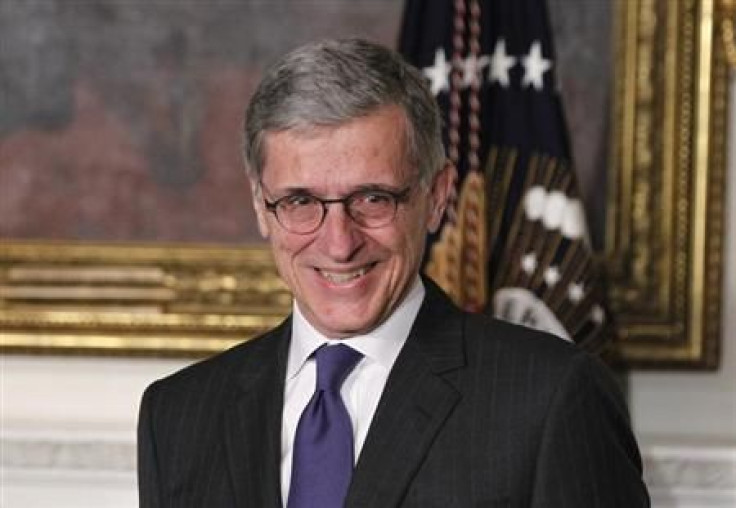FCC On Net Neutrality: Chairman Wheeler's Ambiguous Statement Shows Lack Of Initiative On Future Plans

FCC Chairman Tom Wheeler released a statement Tuesday responding to what many are calling the death of net neutrality. But instead of reaffirming the Federal Communications Commission's commitment to maintaining a free and open Internet, Wheeler’s statement just added more ambiguity to his position, ultimately weakening the FCC’s hold on net neutrality.
“The government, in the form of the FCC, is not going to take over the Internet,” said Wheeler succinctly. “It is not going to dictate the architecture of the Internet. It is not going to do anything that gratuitously interferes with the organic evolution of the Internet in response to developments in technology, business models and consumer behavior.”
"Organic evolution of the Internet" is a somewhat obfuscating phrase considering the speculation that Tuesday’s landmark ruling could cost consumers anywhere from $1 to $5 per month on subscription services like Netflix alone.
“But the FCC also is not going to abandon its responsibility to oversee that broadband networks operate in the public interest. It is not going to ignore the historic reality that when a new network transitions to become an economic force that economic incentives begin to affect the public interest,” Wheeler continues, contradicting the position that he just affirmed. “This means that we will not disregard the possibility that exercises of economic power or of ideological preference by dominant network firms will diminish the value of the Internet to some or all segments of our society.”
How can the FCC both stand back and let the Internet develop organically, eschewing "gratuitous" actions while still maintaining a hold on what is considered to be in the public’s interest? While major ISPs like Verizon and Comcast own both competing subscription services and the bandwidth on which they are broadcast, Wheeler is seemingly saying that the FCC must step in to maintain their neutral treatment of bandwidth. But that is completely at variance with the earlier sentiment of letting business practices and consumer behavior develop naturally in a free market.
Wheeler seemingly is stamping his feet in a show of power while remaining undecided on where he stands on net neutrality. “The key message is that the FCC has the authority – and has the responsibility – to regulate the activities of broadband networks,” Wheeler states emphatically. “There is no justification, and no serious basis, for doubt about the fundamentals.”
While Chairman Wheeler spouts hot air about the power and responsibility of the FCC, the argument is that without regulation, broadband controllers will have unchecked power over what many consider a public right of access to the Internet. No one is proposing a government takeover of bandwidth, but it is important to understand that “dominant network firms” got a major win with Tuesday’s decision and they will take full and legal advantage of it, all while the chairman hems and haws.
Ultimately Wheeler's main argument is not about whether the FCC should act and regulate, but rather that they have that power. “My intention is to employ any necessary means among the wide variety of them given to the FCC by the Congress to sustain our jurisdiction. That the jurisdiction exists is not debatable,” he stated. “What path we take to assure it will be a function of circumstance, but whether we secure it should not be a source of doubt.”
What good is that jurisdiction if Wheeler’s ambiguous stance on net neutrality effectively creates an impotent commission?
© Copyright IBTimes 2024. All rights reserved.











